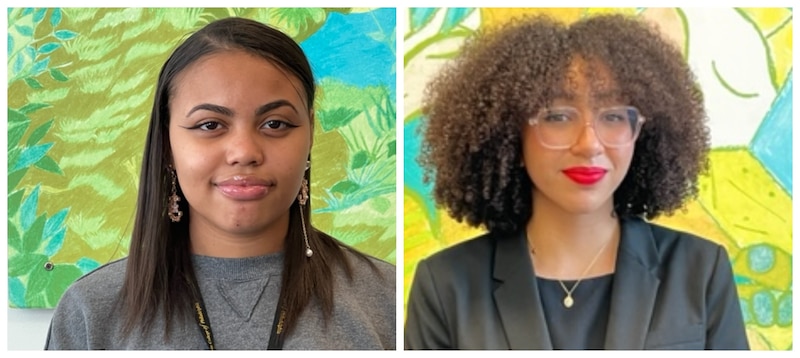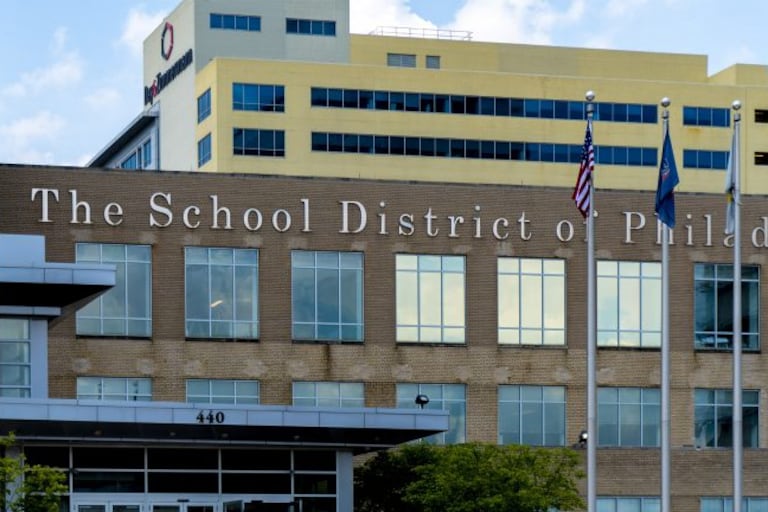Philadelphia district schools still haven’t filled all its teaching positions three weeks into the academic year, and there are a significant number of vacancies for crucial positions like nurses, bus drivers, and school climate staff.
Chief Talent Officer Larissa Shambaugh told the Board of Education Thursday that teaching positions are 98% filled, compared to 97.4% last month. But based on her past statements, that means close to 200 slots are still vacant.
Almost a quarter of the climate staff jobs — workers who keep order during lunch and recess among other duties — remain vacant, as well as 8% of the positions for nurses, Shambaugh said. The district’s goal this year is to have a full-time nurse in every school; in the past, some schools shared nurses.
At the same time, Shambaugh said, new teacher recruitment policies seem to have paid off. During the 2021-22 school year, the district offered bonuses to teachers who announced relatively early that they intended to leave. That resulted in a 46% increase compared to 2020-21 in the number of people who informed the district in January, February, and March, she said.
A larger share of staff announcing in those months that they will leave, as opposed to later in the year, helps give the district a head start in hiring for the next school year.
She also said there has been progress in filling jobs in schools that have traditionally been harder to staff. Of 17 high-needs, high-poverty schools that started hiring as early as January, 11 have a better staffing rate this year than last year, and five were fully staffed. And the overall fill rate for these schools was 95.5% this year, compared to 92% last year, Shambaugh reported.
Teaching shortages are especially acute in Pennsylvania. In the last decade, new teaching certifications awarded by the state dropped by two-thirds, from more than 15,000 to close to 5,000, according to the Pennsylvania Department of Education.
The board also approved a contract with 32BJ, its service workers union, which represents custodians, cleaners, bus drivers, and other maintenance personnel. The union authorized a strike last month before reaching an agreement with the district.
The new contract will raise salaries 11% over the course of the four-year contract, alter work rules, and improve training to make it easier to recruit for some hard-to-staff positions, Shambaugh said. The union has already voted to approve the pact.
During public comment, several speakers expressed opposition to the practice of moving around teachers after the school year has begun to match actual rather than predicted enrollment. For instance, if a school planned for three kindergarten classes of 30 students each, but only 60 students showed up, a teacher would be transferred to another school, instead of creating three classes of 20 students.
After a pause in 2020 and 2021 due to the pandemic, the district has announced it is resuming the practice — known as “leveling” — this year, although it has been rebranded as “enrollment-driven resource review.” Leveling has always been done in the name of efficiency, but critics argue it is disruptive for students who have to get used to a new teacher well into the school year.
“Our children have been through so much trauma … how is destabilizing classrooms and taking away their teacher helping our students?” asked retired teacher Diane Payne, a member of the watchdog group Alliance for Philadelphia Public Schools.
Due to union rules, teachers with less experience are more likely to be transferred.
“I should not have to live in fear of having my teacher taken away every single year,” said Gwendolyn Roth, a seventh grade student at Kearney Elementary School. “Leveling should be taken away forever.”

Board welcomes non-voting student representatives
The board also welcomed two student representatives for this school year: Sofia Roach, a senior at the Philadelphia High School for Creative and Performing Arts, and Love Speech, a senior at the Kensington Creative and Performing Arts High School.
CAPA principal Joann Beaver called Roach “an extraordinarily amazing young woman” who is pursuing a senior year internship at the Mutter Museum and studying gun violence and its impact on communities.
She is also a founding member of the School’s Diversity, Equity and Inclusion Committee and edits The Bullhorn, a district-wide student newspaper. She is focusing on creative writing, takes four Advanced Placement courses and has a 4.0 GPA, Beaver said.
Kensington Principal Patricia M. McDermott-Fair said Speech is an award-winning artist who is in an dual-enrollment program at the Community College of Philadelphia.
“Love has been described by her teachers as a student with high personal and academic standards, a strong moral compass and a drive to help others,” McDermott-Fair said.
Students apply for the position, which is strictly advisory. Past board members have attended national education conferences and conducted studies among their peers.
In short speeches, the two students said that they look forward to bringing the student perspective to board members.
“Students deserve to be heard and not just seen,” Roach said.
Dale Mezzacappa is a senior writer for Chalkbeat Philadelphia, where she covers K-12 schools and early childhood education in Philadelphia. Contact Dale at dmezzacappa@chalkbeat.org.






